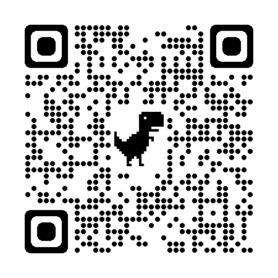Agenda
Data Donation Day (Hybrid)
Data Donation Day brings together applied researchers, methodologists, research engineers and software developers with an interest in using digital trace data for scientific research.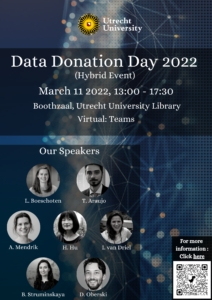
Researchers from various disciplines working on this topic will share their experiences, and there will be plenty of opportunity to catch up and share ideas.
Data Donation Day is a hybrid event that takes place both at Utrecht University and on Teams. To attend, please register before February 28th here.
Looking forward to seeing you on March 11!
Kind regards,
The organizing committee
Laura Boeschoten, Daniel Oberski, Kyuri Park, Qixiang Fang, Marianne Geelhoed
- Program overview
| 13:00 – 14:30 | Session 1 Laura Boeschoten Adriënne Mendrik Haili Hu Daniel Oberski |
| 14:30 – 15:00 | Coffee Break |
| 15:00-16:30 | Session 2 Irene van Driel Bella Struminskaya Theo Araujo |
| 16:30 – 17:30 | Drinks |
- Our speakers
Dr. Laura Boeschoten
Title “Data donation: What is it and why is it important?”

Abstract
In the last couple of years, we have developed an idea and workflow for donation of digital trace data for research. We start Data Donation Day by giving a general introduction of this idea, the key concepts as well as our vision on the future of data donation.
Biography
Laura Boeschoten is an assistant professor at the department of Methodology and Statistics at Utrecht University. Her research focusses on the quality of multisource statistics and on making digital trace data available for researchers in a privacy preserving and ethical manner.
Dr. Adriënne Mendrik
Title “The Eyra Port project: Transparent data donation”
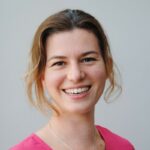
Abstract
As a substantive part of our lives take place on digital platforms, the digital traces we leave behind on those platforms have become an important object of study. Thanks to the GDPR, research participants can request their digital traces from various platforms they use, such as Google or WhatsApp. These are then received as data download packages (DDPs) that can be shared with researchers. In this project, we developed a software-as-a-service solution that enables extraction of essential data for specific research questions, without sending data from the DDP over the internet. This software is called ‘PORT’. Data extracted from the DDP is presented to the participants in PORT and can be donated for research after informed consent.
Biography
Dr. Adriënne Mendrik has been a researcher in the field of medical image analysis for over 10 years, after which she broadened her horizons as a manager at the Netherlands eScience Center. She loved their aim to enhance science, from astronomy to life and social sciences, with digital tools. However, she realized that there was a need in science for long-term software-as-a-service solutions that required a new ecosystem. Therefore she founded the company Eyra Leap and the foundation Eyra Nova with the aim to provide sustainable software-as-a-service solutions that empower scientists.
Presentation
Dr. Haili Hu
Title “How to write Python scripts for PORT”
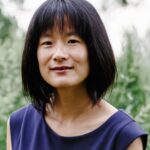
Abstract
The data donation platform PORT allows researchers to submit their own data extraction Python scripts for their research. But what are exactly the requirements of such a script and how do you test your script before submitting it to the PORT platform? In this talk, we present some general guidelines and show two examples of data extraction scripts, namely for Google Semantic Location History and Google Browser History data. We will focus on how to make your script robust by testing it on real and simulated datasets.
Biography
Dr. Haili Hu is research engineer at Utrecht University, working at the interface between research and software engineering. She collaborates with researchers of various domains to develop scientific software while considering quality and reusability. Previously, she worked as software engineer at the remote sensing company Satelligence, and as scientist at SRON Netherlands Institute of Space Research. She also did a Rubicon fellowship in Astrophysics at the University of Cambridge. She holds a Msc in Physics from Radboud Universiteit Nijmegen and a PhD in Astrophysics from both Radboud Universiteit Nijmegen and Katholieke Universiteit Leuven.
Presentation
prof.Dr. Daniel Oberski
Title “Potential data donation applications”
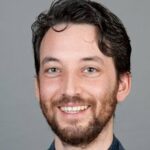
Abstract
TBA
Biography
Daniel Oberski holds a joint appointment as professor of data science methodology at the department of Methodology and Statistics at Utrecht University, and at the biostatistics department of University Medical Center Utrecht (UMCU). His work focusses on latent variable modeling and data science applications in social, behavioral and biomedical sciences. He leads the Social Data Science Team at ODISSEI and is lead data scientist of UMCU’s Digital Health program.
Presentation
Dr. Irene van Driel
Title “The promises and pitfalls of Instagram data donations in understanding social media use”
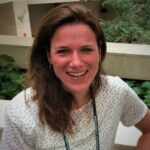
Abstract
Studies into the association of social media use with mental health are largely based on measures of time spent on social media. The small and inconsistent results in these studies may be due to a lack of explanatory power of time-based measures. Data Download Packages (DDPs), the archives of social media platforms that each user is allowed to download, provide a new and promising method to collect content-based information about social media use. In this study, we discuss the promises and pitfalls of DDPs based on an exploratory analysis of 110 Instagram DDPs gathered from 102 adolescents. DDPs provide tremendous opportunities to get insight in the frequency, range, and content of social media activities, from browsing to searching and posting. Yet, the method is also complex and laborious and demands numerous procedural and analytical choices and decisions. Moreover, due to several factors unique to social media interactions, automated content analysis may be challenging. We successively discuss the challenges and opportunities of collecting and analyzing DDPs to help future researchers in their consideration of whether and how to use DDPs.
Biography
Irene van Driel is teacher and researcher at the Amsterdam School of Communication Research, the University of Amsterdam. Irene’s teaching and research interests are on the crossroads of media use and positive youth development. Specific topics of interest are social media use and adolescent well-being and media representation and identity development.
Presentation
Dr. Bella Struminskaya
Title “Willingness and consent to data donation: methodological and practical aspects”
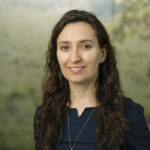
Abstract
TBA
Biography
TBA
Presentation
Dr. Theo Araujo
Title “D3I: Towards a Digital Data Donation Infrastructure for Academic Research”
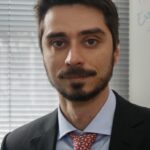
Abstract
The D3I project aims to convert existing tools developed in the Netherlands for data donation into an infrastructure for academic research. Via this infrastructure, researchers will be able to work with individuals who are willing to donate their platform usage data to academic research and create a movement in which users and academics come together to share and make use of data rights. This talk will provide more insight on the project, the plans for the infrastructure, and how other researchers can get involved. In addition, using Communication Science as an example, this talk will discuss some of the research questions already being answered by early versions of these tools.
Biography
Theo Araujo is Associate Professor of Communication in the Digital Society at the Department of Communication Science at University of Amsterdam and researcher at the Amsterdam School of Communication Research. He currently co-directs the Digital Communication Methods Lab (https://digicomlab.eu) and the Communication in the Digital Society initiative (https://uva.nl/communication-digital-society). His research focuses has a specific emphasis on computational social science, including the implementation of large-scale data collection and analysis for communication research. Substantively, he investigates the increasing adoption of artificial intelligence and related technologies within our communication environment, including conversational agents and automated decision-making.
Presentation
- For registration:
Click this link or scan the QR code below.
The deadline for registration is 28th of February 2022.